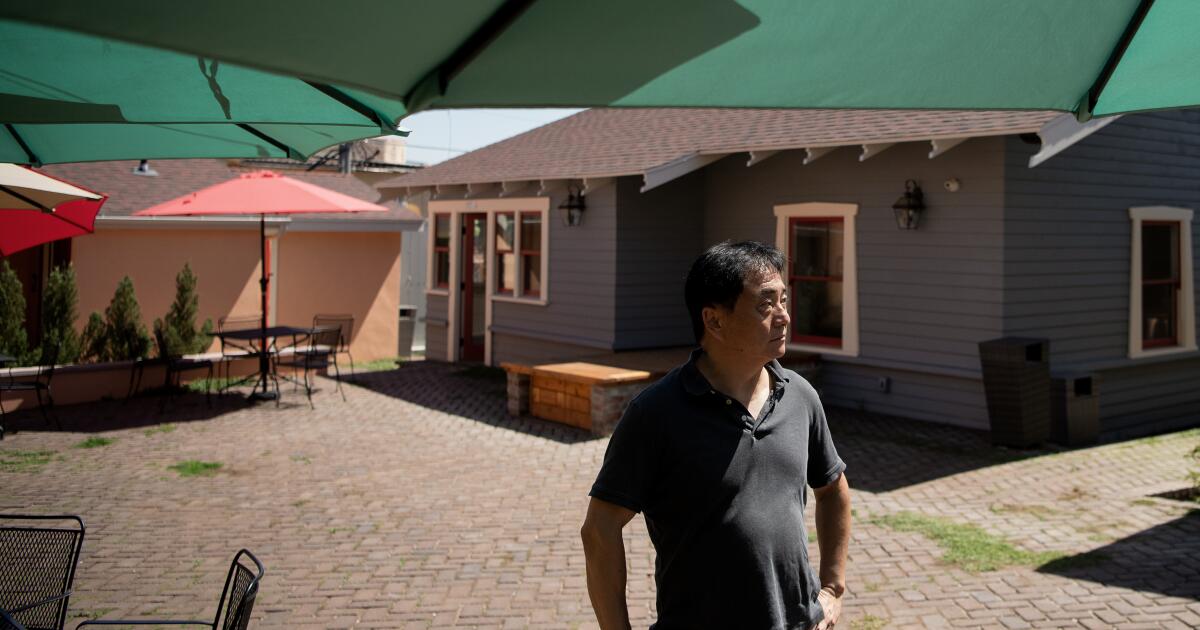Before Lou knew of the Victor Heights plot, another developer evicted the residents living in the Craftsman and the single-story Victorian under the Ellis Act as part of a plan to bulldoze them and build 26 luxury apartments on top. When that proposal wasn’t approved, Lou bought the property along with two partners (he owns 20% of the development). One of his partners, Brian Falls, formerly worked for Palisades, the development firm that’s behind 1111 Sunset Blvd.; now, he has his own development company called the Urban House.
“Preservation is not just about the buildings, but also the settings, and the culture,” says architect Jingbo Lou, in front of one of the converted Craftsman bungalows at Alpine Courtyard.
(Mariah Tauger / Los Angeles Times)
“Preservation is not just about the buildings, but also the settings, and the culture,” Lou says.
For him, preserving the settings and culture of Victor Heights means reinstituting the commercial fabric of the neighborhood by providing affordable rents for first-time small-business owners.
As part of his research into the neighborhood, Lou found a 1932 picture from USC’s digital library that shows how residential homes were once sandwiched between small retail shops in Victor Heights. All of his tenants at Alpine Courtyard, he says, “are in their mid-30s, have accumulated a lot of experience in their field and were looking for a starting point to have their own business.”
Lou finalized the deal to develop the plot in 2019, which was already zoned for commercial business as part of a 1970 master plan amendment — on account of the area’s proximity to water management district buildings, Elysian Park and major freeway intersections.
Early on, he learned that there was an oil well in the middle of what’s now the courtyard, which would have been a risk factor for the previous developers who planned to build residential units on top. Back in the late 1800s, Victor Heights — named for Victor Beaudry — was a popular area for oil production.
Lou’s plan maintains the existing layout instead of building anew and includes commercial tenants who don’t sleep there overnight.
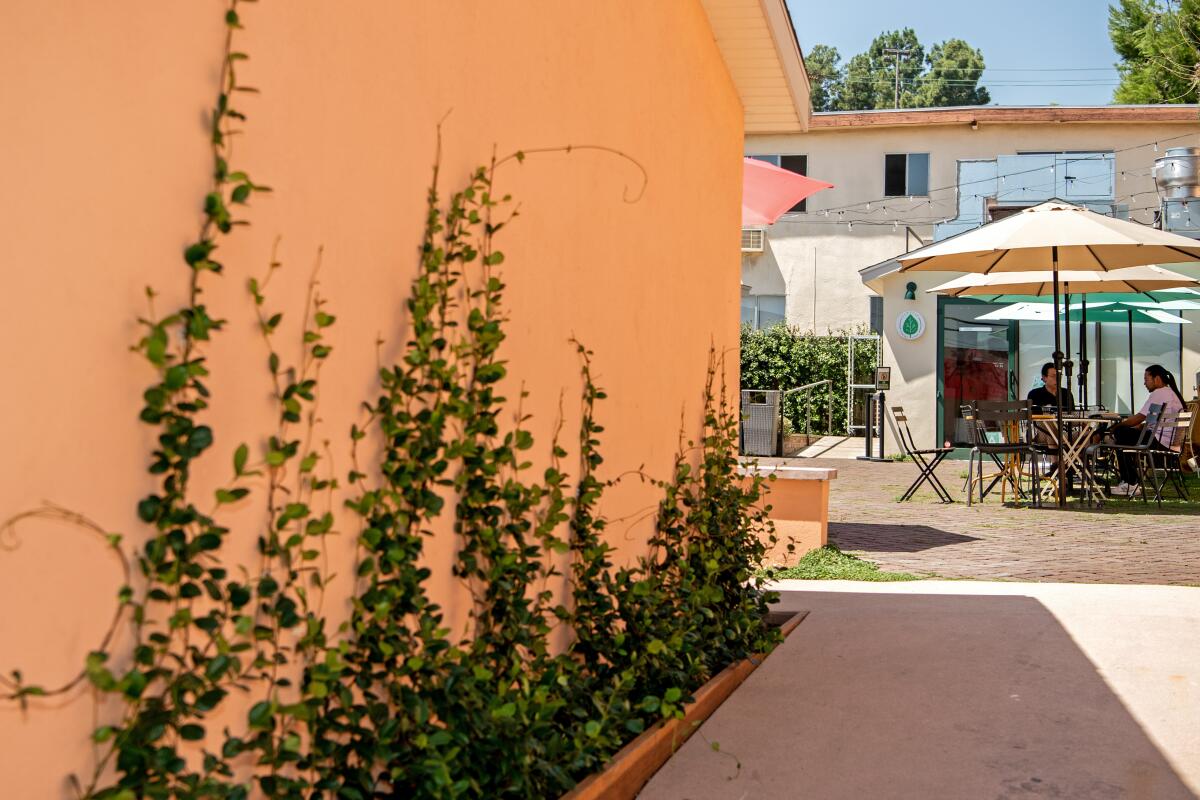
Banchan shop and cafe Perilla has garnered good reviews and national attention. Owner Jihee Kim serves rolled egg and seaweed, dosirak with blistered cod, kimbap and more.
(Mariah Tauger / Los Angeles Times)
Yee was the first of the group courted by Lou. He came by her Chinatown kiosk soon after it opened in the spring of 2021 and was impressed by her vegan croissants and fruit danishes. Eventually, he persuaded her to collaborate with him on a second location in Victor Heights.
Once she was brought in, Yee asked her good friend Riley to open a coffee shop, and also Thompson, whom she had worked with at the now-closed Konbi, to come on board.
Lou jokes that she’s his co-developer on the project. At the new bakery, she’ll continue to serve all of her Baker’s Bench staples, and she hopes to eventually offer hot breakfasts too. “We’ll just slowly grow as we’ve always slowly grown,” she says.
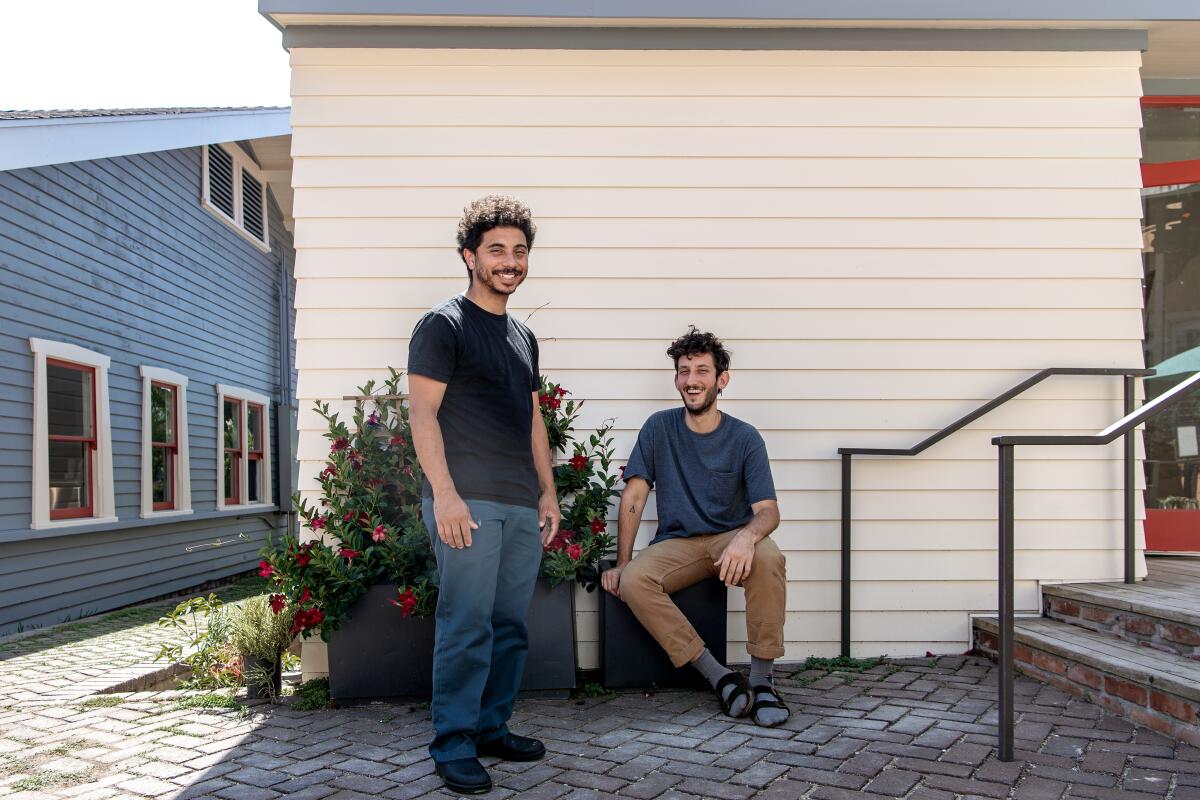
Chef Miles Thompson, left, and business partner Andy Schwartz expect to open a restaurant at the Alpine Street complex that’s an evolution of their pop-up Baby Bistro.
(Mariah Tauger / Los Angeles Times)
Already, Riley is selling Yee’s croissants, chocolate chip cookies and cinnamon knots at Heavy Water Coffee. He’s also serving a collaborative drink with Perilla, an espresso tonic that utilizes Kim’s fermented umeboshi plum syrup.
“There’s nothing like this in Los Angeles,” says Thompson, who has worked as a chef in L.A. for over 15 years, including at the now-closed Allumette, Michael’s in Santa Monica and Konbi.
The development’s communal dynamic was a big part of its appeal for Schwartz. “In a pretty destination-driven, isolated city, there’s going to be a collective energy here, and I don’t think that’s something that happens so much in Los Angeles,” he says.
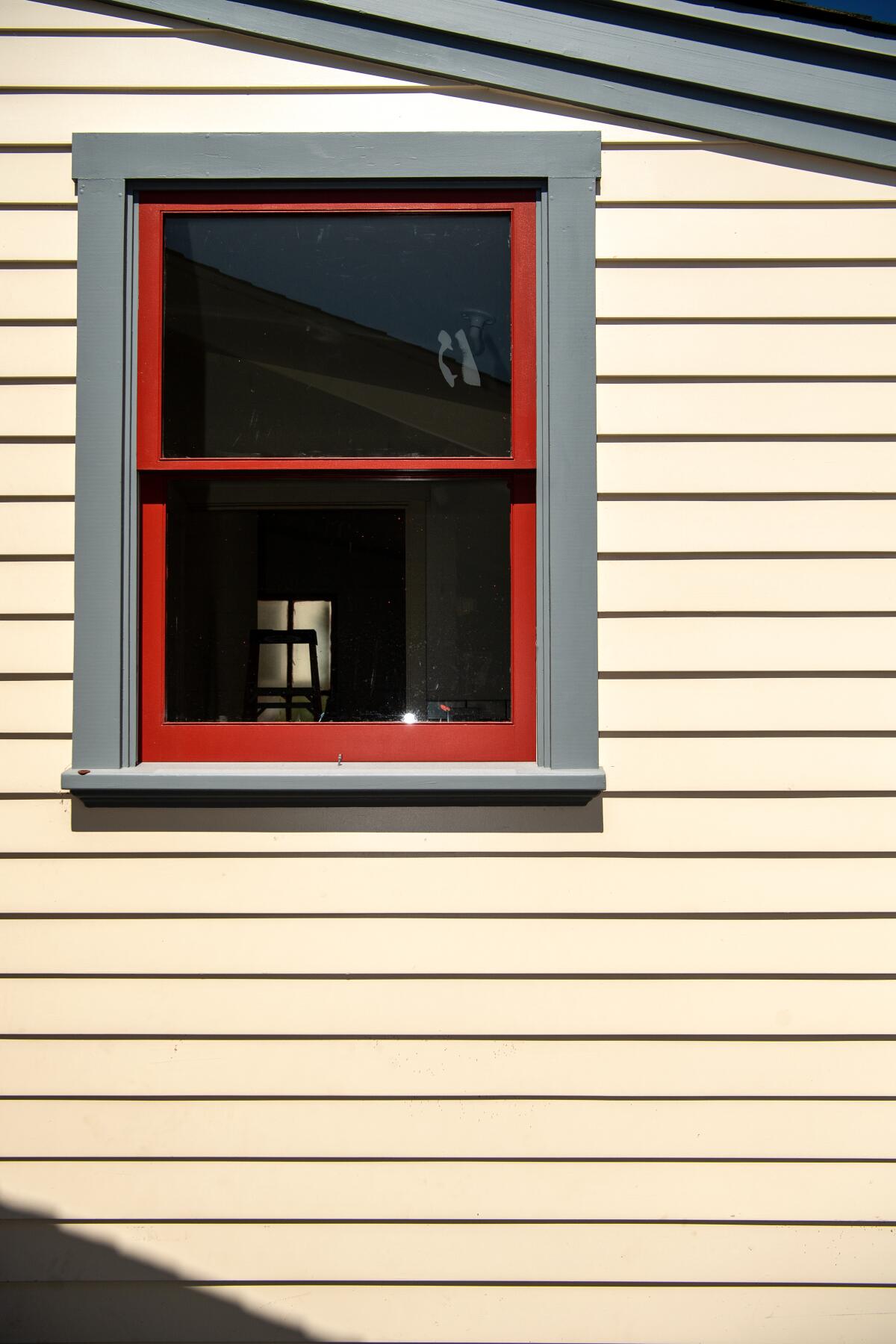
“In a pretty destination-driven, isolated city, there’s going to be a collective energy here, and I don’t think that’s something that happens so much in Los Angeles,” says Andy Schwartz.
(Mariah Tauger / Los Angeles Times)
At this point in time, the old building that will house the forthcoming restaurant from Schwartz and Thompson is still in the beginning stages of being converted into a new restaurant (rough plumbing, flooring, etc.).
Jumie Ra, a ceramicist who has lived in Victor Heights for 11 years, welcomes the new businesses in Alpine Courtyard. “I’m also a small-business owner, so I think any small business is good, it just doesn’t get a lot of attention here,” she said.
Devin, a newer resident to Victor Heights who preferred to be called by his first name only, said of Heavy Water and Perilla: “They’re a little bougie, but it’s nice to have something, because it’s sparse.”
To Chen, who worries that the culinary hub is “trying to emulate a Silver Lake type of crowd,” a neighbor cup of coffee from Heavy Water that costs $2 is “a nice gesture, and probably well-intentioned,” he says. “But sometimes it’s not about the individual business practices, it’s about the developers and the bigger picture of what’s happening to a neighborhood.”
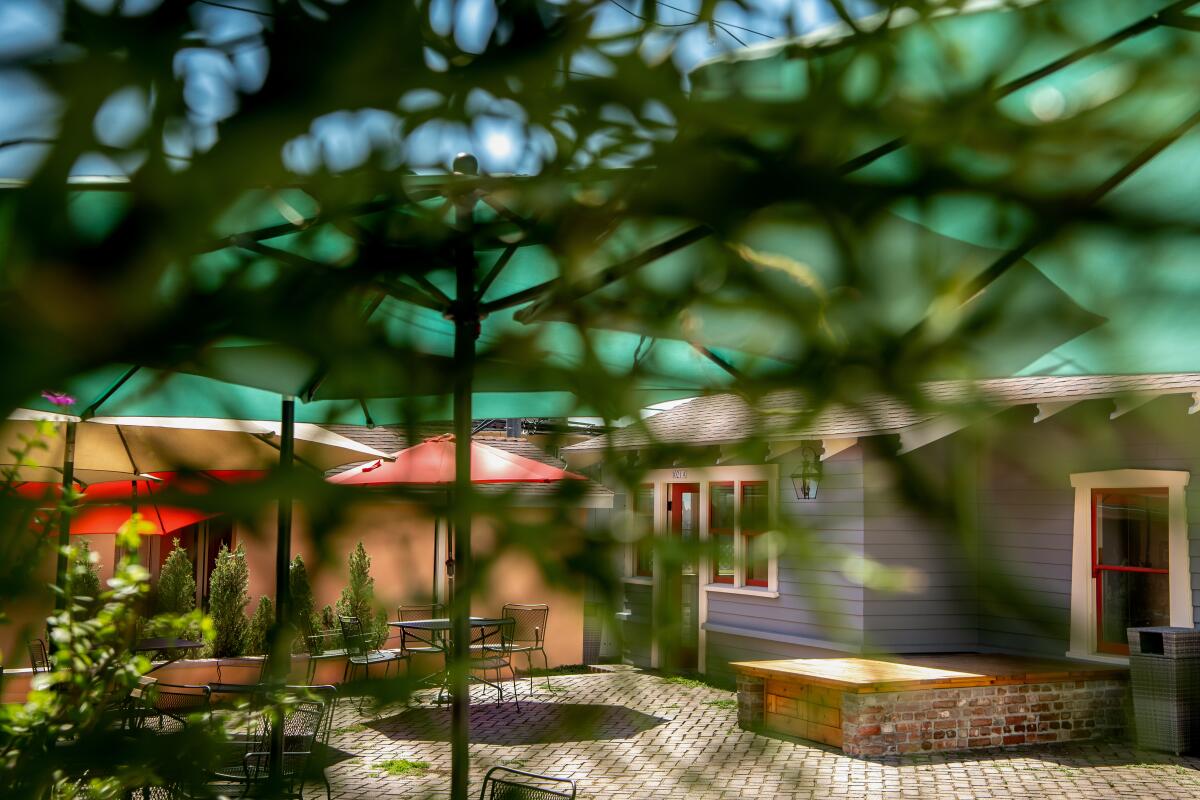
Alpine Courtyard returns small businesses to a stretch of Victor Heights where shops were once sandwiched between residential homes.
(Mariah Tauger / Los Angeles Times)

